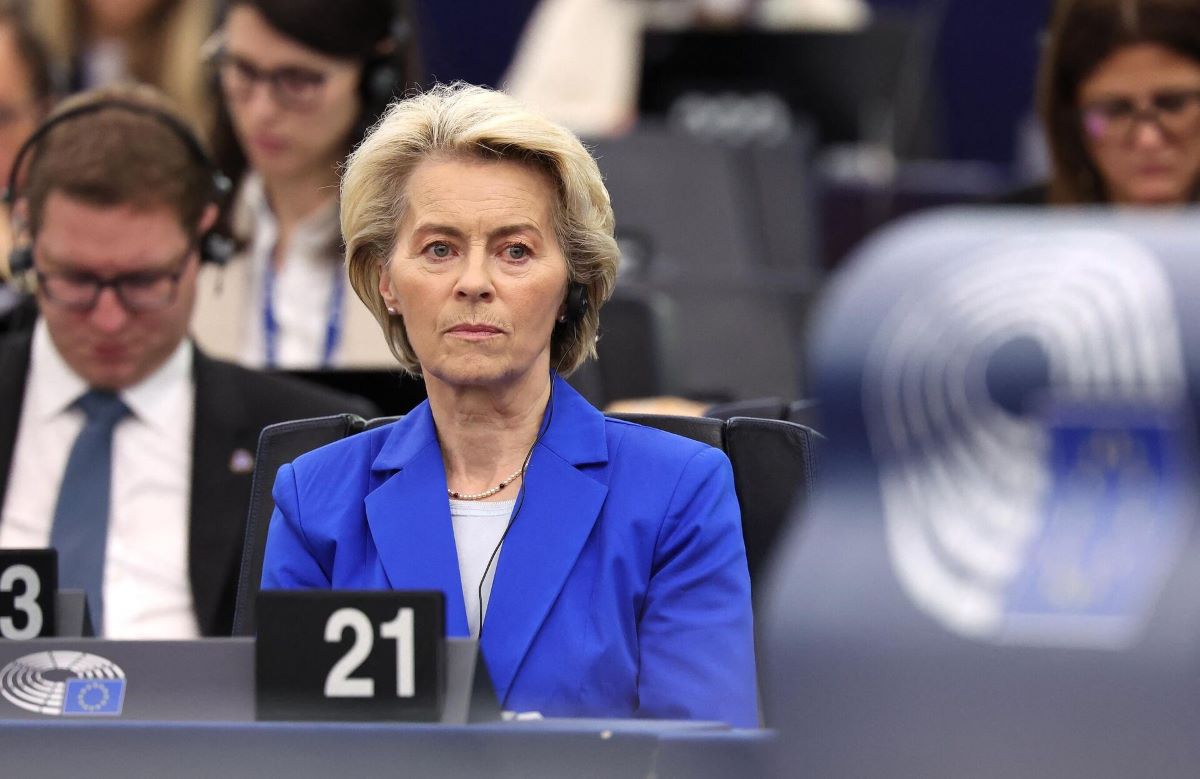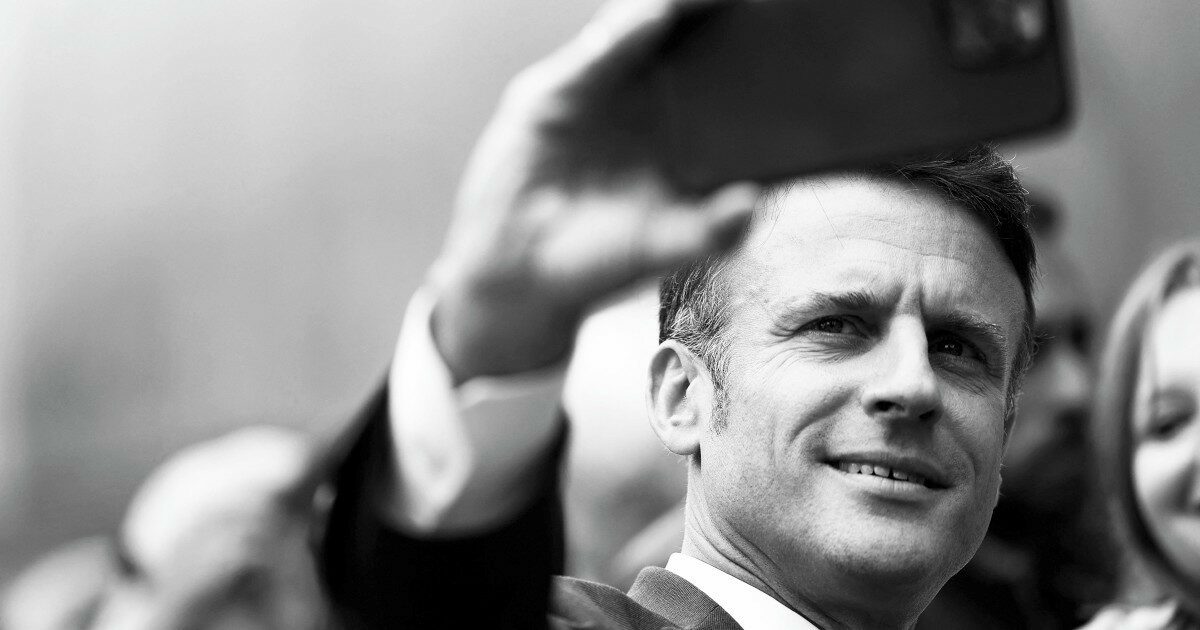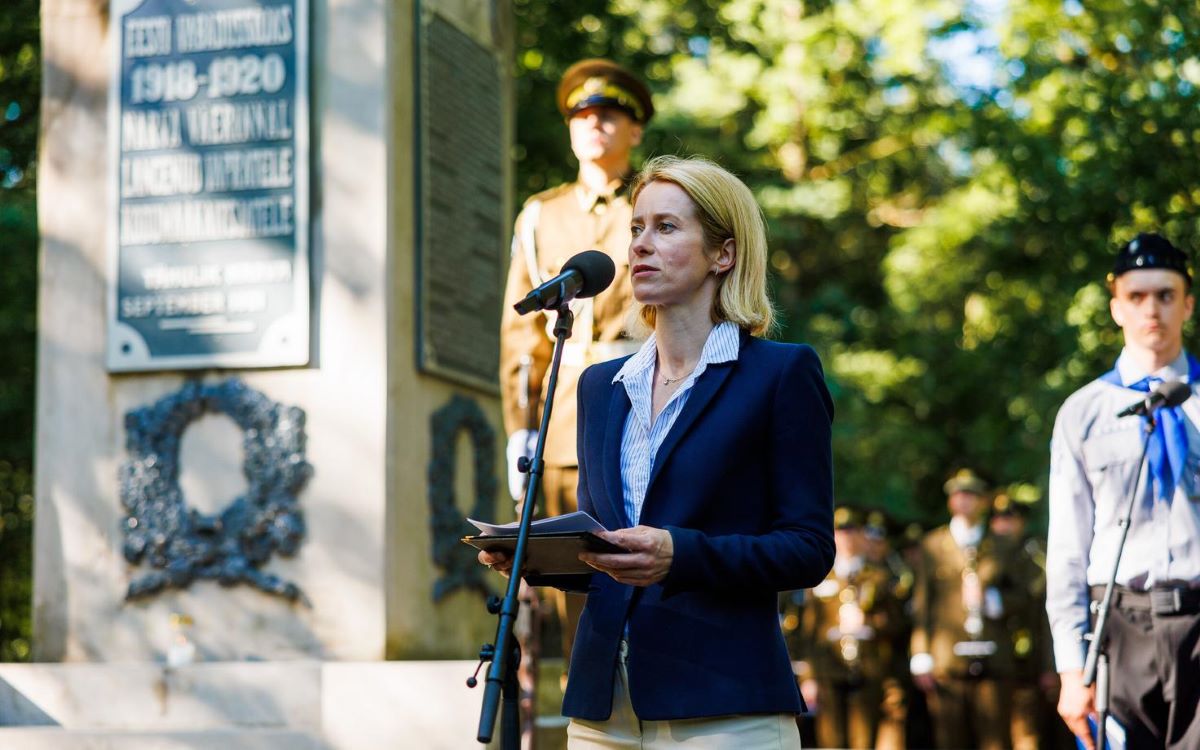Europe, on the eve of the June 8-9 elections, finds itself under the control of a unified war party, aligned with the USA and NATO, ignoring the popular will and undeterred by conflicts, even nuclear ones. This political bloc neither addresses the threat of world war nor the climate collapse, stigmatizing those who oppose it. The situation is exemplified by France, where the Socialist Party supports a pro-war candidate. Current European politics, led by figures like Ursula von der Leyen, seem set to continue without significant changes, perpetuating the decline and subjugation of united Europe.
* * *
EU: Yes or No to the Unified War Party
THE VOTE ON JUNE 8-9 – The political bloc governing Europe, despite comprising elected officials from different sides, is aligned with the USA and NATO. Those who contest this stance are considered hostile: only voters can change this fate
For many voters, it will not be easy to choose and vote in the European elections on June 8-9. A large part of our laws are co-decided by the European Parliament, together with the Commission and member states, so the vote is not pointless.
But on the two vital issues today – the war that risks becoming global and the climate collapse – there is now in Europe a kind of unified party that equates the Union and NATO and will not change at all if the current majority extends to the conservatives of Giorgia Meloni. It will not change even if the veto right in EU decisions is abolished. The Union’s governments, almost unanimously and ignoring their own peoples, do not seem to fear war, not even nuclear war.
The war party, by necessity, will also be unable to curb the planet’s collapse because if it truly wanted to, it would have to promote peaceful cooperation and disarmament among the top polluters: China, the USA, the EU, India, and Russia. If it wanted to, it would revive the European and international order imagined in the brief period between the fall of the Wall and the dissolution of the USSR, when Gorbachev proposed a Common European Home and the “Paris Charter for a New Europe” was signed in November 1990. The main signatories of the Charter were Gorbachev, George Bush Sr., Kohl, Mitterrand, and Andreotti for Italy. “This was in that blissful break when the world seemed a safer place, between the end of the cold war and about ten minutes later,” writes Mick Herron in the novel Slow Horses.
The advent of the unified war party has tainted the political debate and the electoral campaign in all European countries. Those who oppose sending increasingly offensive weapons to Ukraine and the repeated sanctions against Russia (13 “packages” of restrictive measures, which since 2022 have penalized the Union more than Moscow) are stigmatized as Putinists, sovereignists, or anti-Europeans. Those who advocate for cooperation with Beijing are accused of hostility towards Taiwan and complicity with China’s repression of Uighurs and Tibetans. Those who condemn the bloody depopulation of Gaza carried out by the Israeli army – increasingly resembling genocide, as the Palestinians have been trapped in the Strip without a way out – are labeled anti-Semitic and anti-Zionist, as if the two terms were identical, even when the October 7 massacre is condemned. Most EU governments, including ours, refuse to recognize the Palestinian state.
In this way, dissidents in the electoral campaign have been denigrated: the Five Star Movement and Michele Santoro’s movement in Italy, Mélenchon’s left in France, Podemos in Spain, Sahra Wagenknecht’s Alliance in Germany. On war, it is more difficult than ever to distinguish between the former left, centrists, the right of the People’s Party (Forza Italia), conservatives (Meloni), and the Greens, especially the Germans.
The most spectacular case is that of France. The Socialist Party has chosen a fervent neoconservative as its lead candidate: Raphaël Glucksmann advocates a war economy, a military showdown with Moscow, a common European defense fund of 100 billion, and the seizure of not only profits but almost all frozen Russian funds in European banks (“206 billion euros, to be directed to the Ukrainian resistance”).
Like the US neoconservatives and part of the Biden Administration, the lead candidate overlooks the depopulation of Gaza and foresees a hard clash with Xi Jinping’s China. The appeals of European socialists to preserve the welfare state, minimum wage, extend healthcare and social spending, and adopt more welcoming migration policies are empty of substance if all the money and investments go to the war economy and Defense Europe. Glucksmann could be chosen by the former French left as a candidate to succeed Macron, in the 2027 duel with the far right represented today by Marine Le Pen: so close is the socialist geopolitical vision to that of the current president. Macron is even accused of having procrastinated too long at the start of the invasion of Ukraine when he suggested to Western partners not to humiliate Putin.
We mention the French example because the US strategy on Ukraine and Russia is implemented with an underlying thought about Europe. The hegemony exercised by Germany over the European Union has been undermined in these two years, its dependence on Russian gas and oil almost zeroed, its economic and geopolitical weight greatly reduced. The destruction of the North Stream 1 and 2 pipelines, by Ukrainian and/or American hands, also seems to have been done with this purpose in mind.
The German void has been progressively filled by Macron, who between 2023 and 2024 has multiplied relations with the front of the most anti-Russian states, in Northern and Eastern Europe, and with the UK outside the Union. Orbán’s Hungary is not part of the front and warns against a Europe “ready to go to war against Russia.” The trouble is that his criticisms also hit the EU’s climate policies, which have meanwhile been very diluted.
In Italy, Schlein’s PD is divided over the wars in Ukraine and Palestine. The secretary wants to reposition the party to the left, and perhaps for this reason has nominated war opponents like Marco Tarquinio, who understandably also advocates the dissolution of NATO, given the disappearance of the Warsaw Pact since ’91. However, the PD MEPs have increasingly compactly approved the numerous militarist and anti-Russian resolutions of Parliament. The contrary votes have been two or three, until disappearing altogether.
The Union’s watchword is borrowed from Washington and NATO: invoked is not the “European sovereignty” used as a facade by Mattarella and Macron, but the rules-based international order. The rules are set by the country that has broken them the most since 1947: the United States and its covert military-industrial complex. They have been broken through threats, sanctions, military interventions, regime changes, in a world it pretends to govern alone – after the end of the USSR – and can no longer dominate. In Europe, it has violated all the promises made to Gorbachev, planning the extension of NATO up to Russia’s borders (Ukraine and Georgia).
Europe remains silent and consents, acting against its interests with growing fervor and without investing in the emerging multipolar order. Ursula von der Leyen, the belligerent president of the EU Commission, leads the unified war party. Things are unlikely to change if Mario Draghi takes her place. This will be decided on June 8-9 and in the coming years: whether the decline of US unipolarism will be accompanied by the decline and subjugation of united Europe or not.
Il Fatto Quotidiano, June 5, 2024





